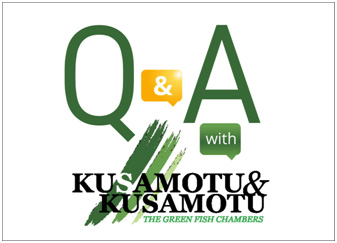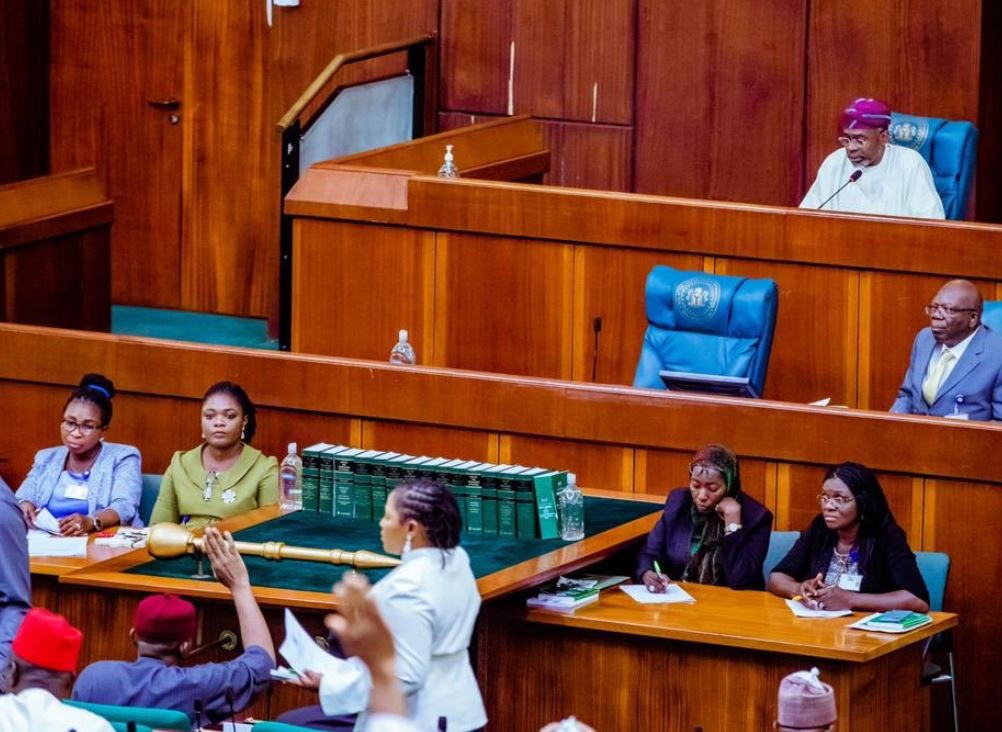Subsequent to the outbreak of the COVID-19 virus in Nigeria, the Federal Government (FG) has instituted a lockdown in the Federal Capital Territory (FCT) Abuja, as well as Lagos and Ogun States, which commenced on the 30thof March 2020, in addition to the directive issued by the Lagos State government on the 22nd of March 2020, instructing civil servants between Grade Levels 1 – 12 to work from home.
States not covered by the FG lockdown order (such as Kano, Bayelsa, Rivers, Ondo and Kaduna States) have also instituted partial or full state-wide lockdowns and curfews to reduce the spread of the disease in their respective states. Other than workers in essential services and areas such as healthcare workers and food service providers, all other businesses are expected to close for the duration of the lockdown.
On the 13th of April 2020, President Muhammadu Buhari, in a further address to the nation, extended the lockdown for a further two weeks, while in an address on the 27th of April 2020, he released new guidelines relaxing the lockdown, as follows:
Selected offices and businesses can open from 9am to 6pm, an overnight curfew from 8pm to 6am with no movement except for essential services, a ban on interstate passengers till further notice, partial and controlled interstate movement of goods and services. In addition, there is to be mandatory use of face masks or coverings in public, while the restrictions on social and religious gatherings still subsist. These guidelines will take effect from 9am on Saturday the 2nd of May 2020. State governments may choose to amend and expand the guidelines based on their unique circumstances. To date, the total number of cases in Nigeria as announced by the Nigeria Centre for Disease Control (NCDC) stands at over 1,000, with the majority of the cases being in Lagos and Abuja.
Advertisement
The unprecedented disease has raised various novel issues and questions, especially as relating to employment, some of which we will consider and proffer possible solutions and answers below.
I listened to the President’s national address on the 27th of April 2020 and I do not know what he meant by selected offices which can open. Can I ask my employees to return to work?
The President in his speech on the 27th of April 2020 did not specify what categories of business fall under the “selected offices and businesses” heading. However, since the President also stated that state governments could amend the guidelines as provided in his speech, we await the amendments which we believe will soon be released by the respective State governments, particularly in Lagos, Ogun, and the FCT Abuja. Note that the full lockdown currently in place in Kano still subsists until lifted by the State government.
Advertisement
Can an employer be liable to an employee if the employee alleges that he was infected in the course of work?
Situations like this will arise with more frequency as the virus continues to spread and essential workers are exposed more often, with an increased risk of contracting the disease. The Employee Compensation Act also provides for payment of compensation to an employee who suffers injury or death in the course of employment via a contributory scheme although most employers are in default and have not made the necessary contributions. An employer should provide safety and protective gear such as gloves, masks. Also, an employer should comply with government regulations such as social distancing, regular washing of hands, disinfection of exposed surfaces, and create as safe an environment as possible. Providing a safe environment will reduce the employer’s liability if he can show that he took all the recommended necessary steps to safeguard the employees. Depending on its specific provisions, employees might not have recourse under the employment contract, however there might be a remedy under torts. If an employee can prove to the court that the employer intentionally exposed them under unsafe working conditions, the employer might be liable for negligence which would entitle the employee to damages.
What establishments are exempted from the restrictions and which establishments are designated as essential?
According to President Buhari in his address to the nation on the 30th of March 2020, the lockdown order does not apply to hospitals and all related medical establishments as well as organizations in health care related manufacturing and distribution. Furthermore, commercial establishments such as; a. food processing, distribution and retail companies; b. petroleum distribution and retail entities, c. power generation, transmission and distribution companies; and d. private security companies are also exempted. Although these establishments are exempted, access will be restricted and monitored. Workers in telecommunication companies, broadcasters, print and electronic media staff who can prove they are unable to work from home are also exempted. All seaports in Lagos remain operational in accordance with the guidelines issued earlier. Vehicles and drivers conveying essential cargoes from these Ports to other parts of the country will be screened thoroughly before departure by the Ports Health Authority. An essential worker is therefore a person working in any industry covered under the exemption.
Advertisement
Can Non-medical essential staff receive hazard pay?
Hazard pay is additional pay/incentive received when an employee is subjected to hazardous situations in the course of his employment. Generally, employees engaged in non health sectors are not entitled to hazard pay. However, this is dependent on the employee contract and any other agreements signed upon employment and can change if there is provision for this in the contract. Hazard pay is therefore at the discretion of the employer. Essential employees can try collectively asking for increased pay/hazard pay, and hope that the pressure will force the employer to consider making the said payments. The Factories Act mandates that employees/workers exposed to hazardous materials must be provided with PPEs such as gloves and goggles. Also, the National Health Act mandates that health establishments minimize injury to health care workers. However, these Acts do not apply to non-factory workers, which excludes other essential staff who run the risk of exposure due to the nature of their jobs. However, we urge affected employees to band together, as group pressure may compel employers to provide protective gear and/or reduce the risk of a dismissal. Note that a dismissed employee may also have recourse via an action for damages.
Can my employees still take their annual leave?
Employees are entitled to time off work or payment in lieu thereof. Under the Labour Act an employee is entitled to at least six days of annual leave for every 12 months of employment. For employees not covered by the Labour Act, time off is as agreed in their contract of employment. Due to the lockdown, most physical offices are closed, and companies have instituted work from home policies. Various employers have taken this to mean that since employees are home, it translates to time off work and have therefore reduced or cancelled annual leave on the grounds that the lockdown has affected their businesses. It is our considered opinion however, that since employees are working (albeit from home), they are still entitled to take their annual leave with total time off work. We suggest that employers appeal to their employees’ altruism in urging them not to take time off for the good of the company.
Advertisement
What can I do as an employer to ensure efficiency of my employees working from home?
To ensure continued efficiency of employees working from home, we suggest that an employer carry out regular progress checks on the status of assigned work, as well as check in with its employees from time to time to ensure that their mental and physical health is not suffering from being cooped up at home during the lockdown. Some organizations have instituted a lockdown bonus, where additional funds are provided to employees to ease the increased cost of groceries etc, which is quite commendable.
Advertisement
Can an employee sue its employer for non-payment of salaries during this period of lockdown? What can an employer do to protect itself from liability during this period of lockdown?
Again, the answer to this will be guided by the employment contract. However, since a situation such as this was most likely not in the contemplation of the parties as at the time of the signing of the contract, it might not contain any provisions to address such situations. If an employer feels that it cannot pay its staff due to the lockdown, the affected employee(s) can be informed and an agreement to vary the employment contract reached. The employment contract can be varied to provide for shorter hours in exchange for reduced pay. Suspension of contract is also an option available to employers, where it is provided for under the employment contract, or the staff handbook. Note that an employer cannot unilaterally suspend employment, or he risks opening himself up to liability.
Advertisement
Furlough is a temporary period of unpaid leave. An employee still remains on the employer’s payroll but does not receive a salary for the duration of the furlough. An employer may decide after considering the reduction in the level of work available to furlough its staff. However, where the employee is asked to do any work at all, it is taken that the furlough period has been lifted.
An employer can protect itself by not unilaterally amending and varying the terms of the employment contract. An employer can give notice in line with the respective employment contracts and terminate the employment if it is necessary. It can also render some of its staff redundant, pending when things improve, or the lockdown is lifted.
Advertisement
What can I do as an employer if my employees cannot work from home?
Where it is impossible for an employee to work from home and the work does not fall under any of the essential service areas as stated by the President, an employer can convert that time into the employee’s annual leave, or send the employee on furlough or render him redundant. Note however that annual leave must be paid, and the employee cannot carry out any work for the employer in that time. We suggest that the employer first sit with the employee(s) or union representatives to discuss the available options.
I am outsourced to a Bank. I have not been paid, and the outsourcing firm and Bank have refused to pay me. What can I do?
Outsourcing is where a business hires another company or person to carry out work for it. This is an area that has not been fully explored by the Nigerian court system, and we hope that the courts as well as the legislature take the time to put in place functional structures that will reduce the abuse inherent in the system as it stands. That being said, the courts have held that outsourcing contracts (“triangular contracts”) are legal, and depending on the employment contract and terms of secondment, the outsourced employee is an employee of the outsourcing firm, not the establishment where he works, and his employment is subject to his primary employer’s pleasure. Therefore, the employee in this situation has a right of action against his primary employer, being the outsourcing employer, both in torts for damages as well as to recover the unpaid salaries.
What is the effect of COVID-19 on contractors?
The Labour Act is the primary Act governing employment relations in Nigeria, however, it only applies to employees employed for manual labour, and clerical work in the private and public sectors. Employees that do not fall under these categories are governed by their individual contracts of employment. A contractor would generally sign a contract for services, which would detail the rights and obligations of the parties to the contract. Parties to a contract are bound by the contract. If the contract does not contain a force majeure clause, the party seeking to determine or end the contract might be liable for determining the contract, particularly if proper prior notice was not given. A force majeure clause is a clause that reduces or removes liability for unavoidable occurrences which disrupt the expected course of events and prevents parties to the contract from fulfilling their obligations. For a force majeure clause to be properly applicable, it must include the scenario being contemplated, for instance, a pandemic. For an employer to rely on the force majeure clause of the contract in this situation, the clause must state that it would come into effect in the particular situation. Where a Force Majeure Clause is not included, or the wordings do not anticipate pandemics, outbreak of diseases or government action as a force majeure, all hope may not be lost as the defaulting party may be able to rely on the doctrine of frustration. The Common Law doctrine of frustration will apply where an unforeseen event either renders a contract impossible to perform or makes the outcome of the performance essentially different from what both parties to the contract imagined at the time the contract was formed. Therefore, each case would have to be taken on its own individual merit and a construal reached after a careful perusal and interpretation of the relevant clause of the contract in question. It is also necessary to consider that either the homeowner or contractor can claim a right to determine the contract under the doctrine of frustration due to the impossibility of carrying out the contract. Note that the doctrine of frustration, though similar to force majeure, is more restrictive and parties will not be allowed to use the doctrine to relieve non-compliance simply because of the event complained about, in this case the COVID-19 crisis itself or the government lockdown as a result of the crisis, has made fulfilment of the contractual obligation more difficult or less profitable. Such an issue will necessarily be determined on a case by case basis.
I am an employer and concerned about my employee’s health status. Can I request that the employee get tested? If the employee refuses what can I do?
The Nigeria Centre for Disease Control (NCDC) has provided guidelines to who can be tested for COVID-19 in Nigeria. They are: anyone with travel history outside Nigeria, who presents with fever, coughing, or breathing difficulties within 14 days of arrival, OR anyone with either cough, difficulty breathing, or shortness of breath in an area of moderate or high COVID-19 prevalence with no other explanation for the symptoms OR anyone who has symptoms and is a contact of a confirmed or probable case. Where an employer suspects that an employee has been exposed under any of the categories, the employer is to immediately ask the employee to self-isolate for a minimum of 14 days while also reaching out to the NCDC by calling the NCDC’s toll-free call centre at 080097000010, or contact via 08099555577 (SMS), 07087110839 (WhatsApp) and follow the instructions.
The employer can prohibit the employee from being within the work environment as well as restrict their access to others. We advise that the employer still pay salaries as usual, as fear of losing a job can be a contributory factor for people lying about their health, which can lead to cases being undetected until it is too late to curtail the spread. NCDC testing is mandatory, and NCDC officials will either move the infected person to one of its quarantine centres or enforce self-isolation.
We remain with kind personal regards.
Yours Gratefully,
For further information, please contact:
Kusamotu & Kusamotu
(The Greenfish Chambers)
2A, Udi Street, Osborne Foreshore Estate,
Ikoyi, Lagos State.
Email: [email protected]
Website: www.kusamotu.com
Tel: +234 (0) 8147203068
Disclaimer
Noting in this Question & Answer should be construed as legal advice from any of our lawyers or the firm. The answers are a general summary of developments and principles of interest on the subject of discussion and may not apply directly to any specific circumstances. Professional advice should therefore be sought before action based on any answer is taken.
Add a comment






